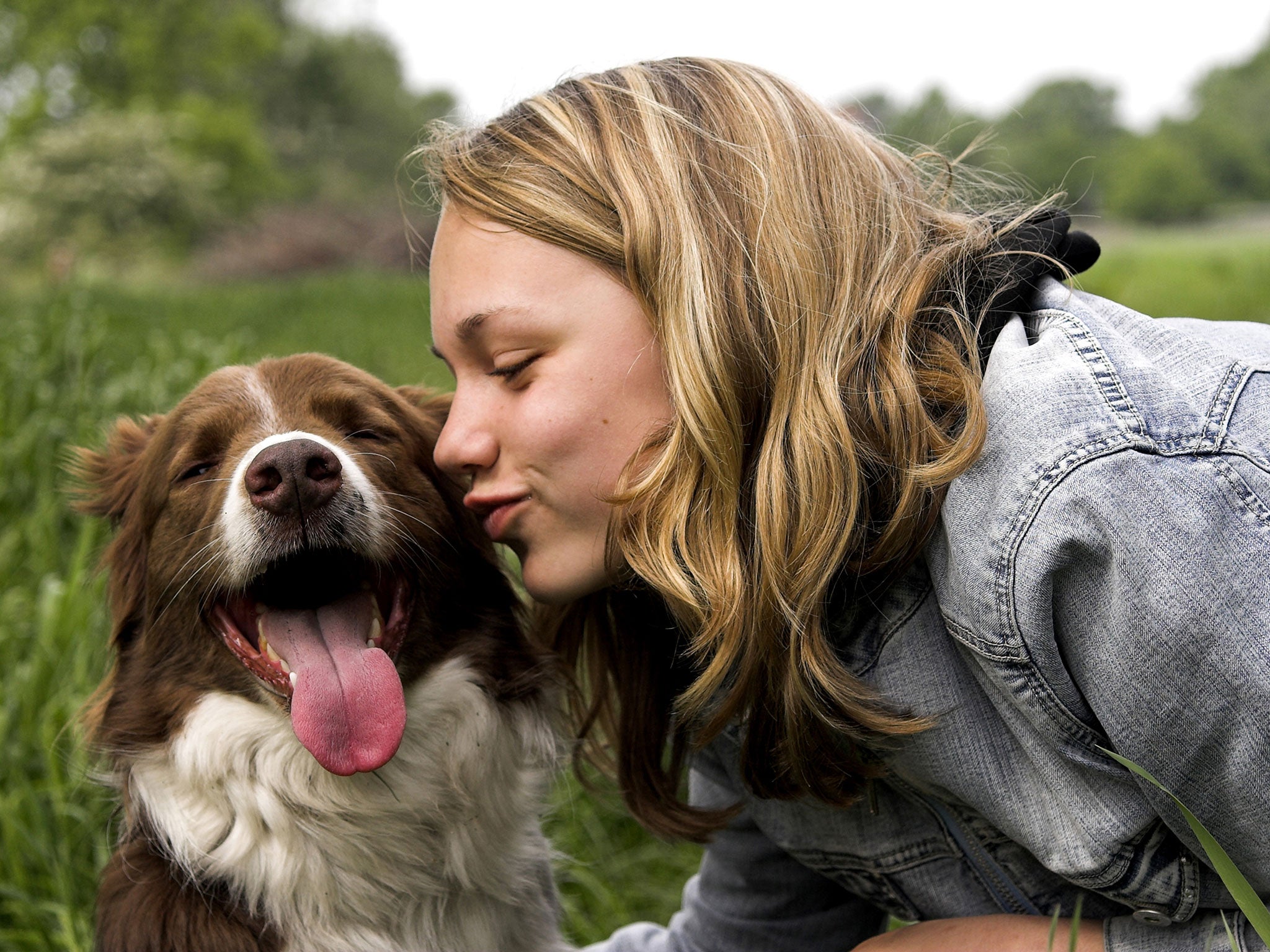Kissing your dog could improve your health, scientists say
Researchers at the University of Arizona believe microbes in a dog's gut may have a probiotic effect on the human body

Your support helps us to tell the story
From reproductive rights to climate change to Big Tech, The Independent is on the ground when the story is developing. Whether it's investigating the financials of Elon Musk's pro-Trump PAC or producing our latest documentary, 'The A Word', which shines a light on the American women fighting for reproductive rights, we know how important it is to parse out the facts from the messaging.
At such a critical moment in US history, we need reporters on the ground. Your donation allows us to keep sending journalists to speak to both sides of the story.
The Independent is trusted by Americans across the entire political spectrum. And unlike many other quality news outlets, we choose not to lock Americans out of our reporting and analysis with paywalls. We believe quality journalism should be available to everyone, paid for by those who can afford it.
Your support makes all the difference.They dip their noses into all sorts of unsavoury places – but smooching your pet dog could actually be good for your health.
Researchers at the University Arizona (UA) believe that the microbes contained in a dog's gut could have a probiotic effect on the human body - encouraging the growth of positive microorganisms.
And now these scientists are recruiting participants in the hope of proving their hypothesis.
"We've co-evolved with dogs over the millennia, but nobody really understands what it is about this dog-human relationship that makes us feel good about being around dogs," said Kim Kelly, an anthropology doctoral student and one of the primary investigators on the study.
"Is it just that they're fuzzy and we like to pet them, or is there something else going on under the skin? The question really is: Has the relationship between dogs and humans gotten under the skin? And we believe it has."
The study is being conducted under the university's new Human-Animal Interaction Research Initiative, which aims to bring researchers from different disciplines together, to explore the mutual benefits of human-animal relationships.
Kelly will work alongside collaborators from the UA Department of Psychiatry, the UA Norton School of Family and Consumer Sciences, the UA School of Animal and Comparative Biomedical Sciences, and the University of California, San Diego, in order to explore whether living with a furry companion boosts physical and mental health in older adults.
"We essentially want to find out, is a dog acting like yogurt in having a probiotic effect?" Kelly said.
Previous research has shown that dog-owners tend to be happier and healthier – but there has been little understanding of the reasons behind this. Meanwhile, other studies have shown that dogs and their owners share much of the same gut bacteria over time.
"We think dogs might work as probiotics to enhance the health of the bacteria that live in our guts. These bacteria, or 'microbiota,' are increasingly recognized as playing an essential role in our mental and physical health, especially as we age," said Dr. Charles Raison, principal investigator for the study and a UA professor of psychiatry in the College of Medicine.
"We know that not all bacteria are good. We can get very sick from the 'bad' bacteria, and modern medicine has done a wonderful job of protecting us from various diseases that are created by these bacteria," said Raison.
"But unfortunately, by eliminating the bad bacteria we've started eliminating the 'good' bacteria, too."
Participants in the study will be paired with a dog from the humane society and live with the animal in their home for three months. At the start of the study the researchers will non-invasively evaluate the participants' gut bacteria, diet, physical activity levels and immune function. The dogs' gut bacteria and physical activity levels also will be measured via non-invasive means.
These tests will be repeated after one, two and three months to find out if there have been any positive impacts on gut microflora in either the humans or the dogs.
The researchers will also look for evidence of any changes in both the participants' and the dogs' health and emotional well-being.
The participants will all be aged over 50 and will not have lived with a dog for at least six months.
To find out more visit: www.uadogstudy.org
Join our commenting forum
Join thought-provoking conversations, follow other Independent readers and see their replies
Comments